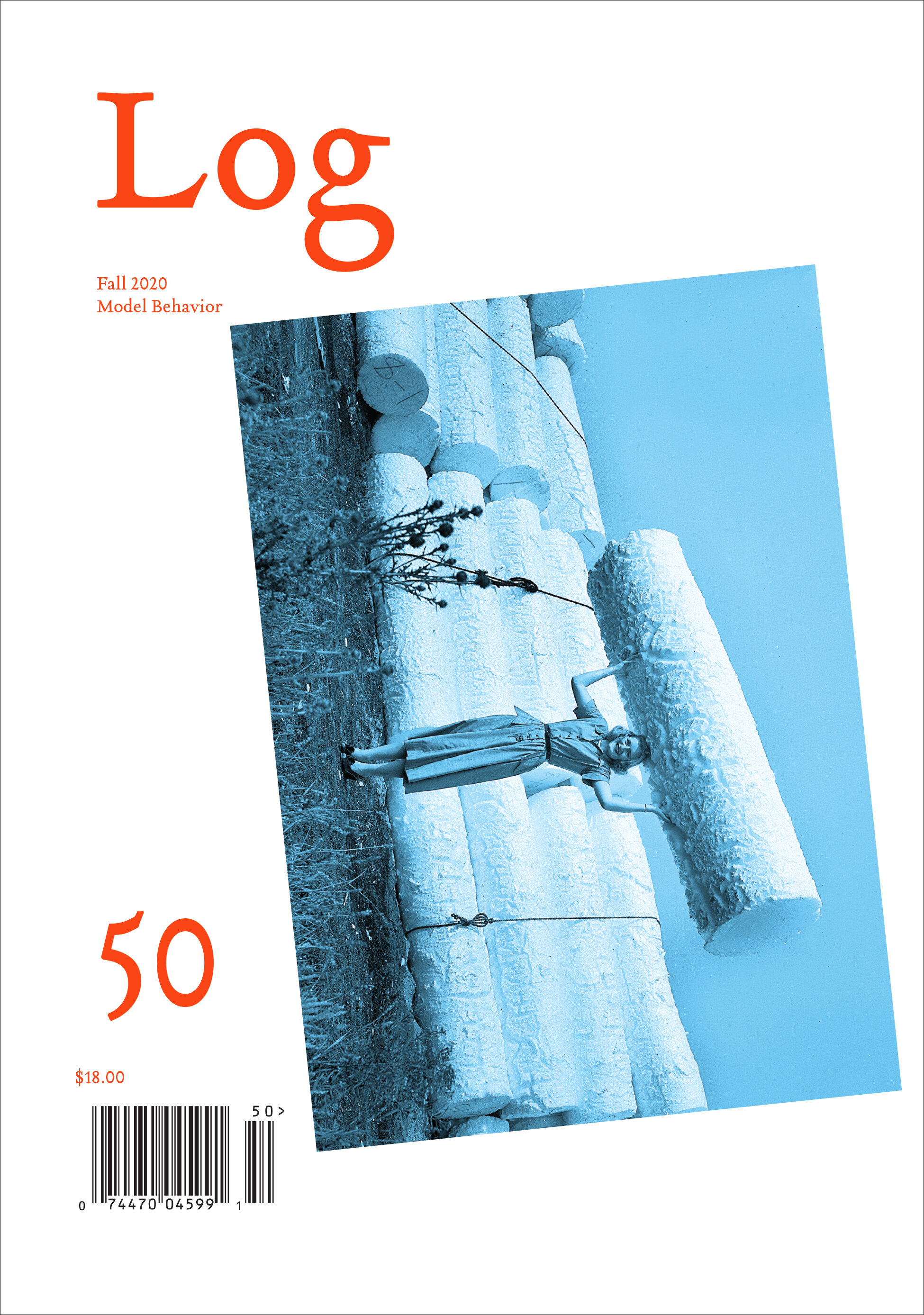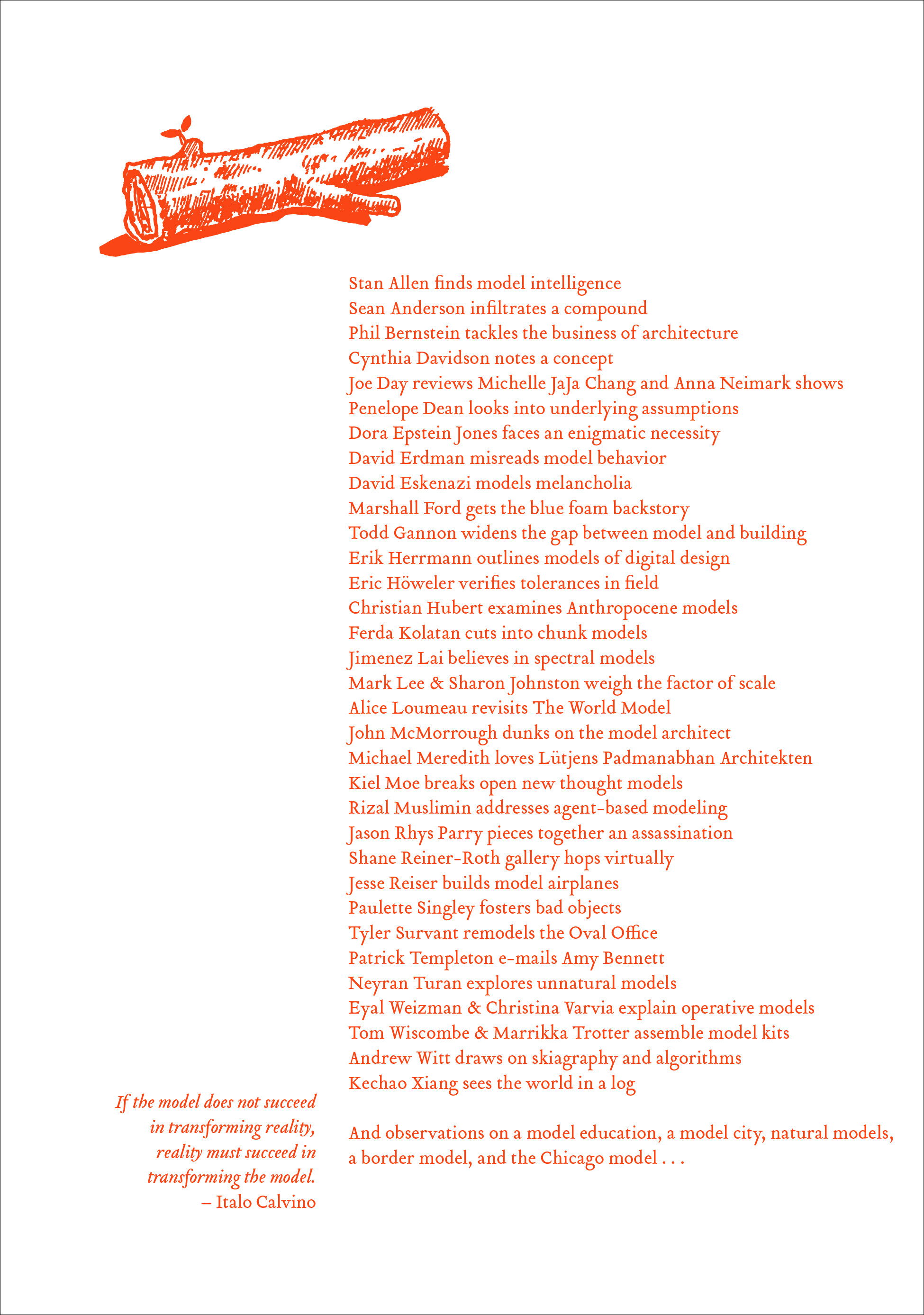
PDF: Log 60: The Sixth Sphere
Winter/Spring 2024
“The architecture we inhabit, the urban systems we rely on, and the landscapes we transform are all part of the technosphere,” write Albert Pope and Brittany Utting, guest editors of Log 60: The Sixth Sphere. For them, the sixth sphere is the technosphere, an emergent man-made system entangled with the Earth’s five natural spheres: the atmosphere, hydrosphere, biosphere, cryosphere, and lithosphere. “Taken as a whole, the technosphere includes our feedlots and sewer systems, factories and housing, tarmacs and croplands, and every modification we have made to the ground, the glaciers, the sea, the air, and the biosphere. It is a vast and often banal landscape. . . . Almost everything we do – prepare a meal, buy a shirt, message a colleague, fill a prescription, take a bath – we do through the technosphere.”
Log 60, a 208-page thematic issue, explores the technosphere as “a planetary enmeshment of bodies, environments, and technologies” by examining the Earth’s natural spheres through the lenses of architecture, science, and philosophy. Geologist Peter K. Haff defines the technosphere; architect Rafael Beneytez-Duran, philosopher Emanuele Coccia, and historian Ingrid Halland each consider how we occupy and breathe the atmosphere; architects Alexandra Arènes, Daniel Jacobs, Brittany Utting, Lydia Kallipoliti, Andreas Theodoridis, and Neyran Turan take on the scope of the biosphere; architects Margarita Jover, Marina Tabassum, and Maggie Tsang wade through the history and challenges of the hydrosphere; anthropologist Dominic Boyer, landscape architect Leena Cho, and architects Billy Fleming, Joyce Hsiang, and Bimal Mendis take stock of the possible futures of the cryosphere; and climate researcher Holly Jean Buck, architects Rania Ghosn, Ang Li, and Marina Otero Verzier each dig into the possibilities in the lithosphere. As the guest editors write: “Log 60 positions the technosphere not only as a geophysical condition to understand and critique but also as a collective site in which to construct alternative social, technical, and environmental futures.”
Printing is restricted on Log PDFs. For academic use and distribution, contact Copyright Clearance Center.

Additional Info
Contents
Alexandra Arènes, “The Critical Zone: Spheres to Cycles”
Rafael Beneytez-Duran, “The Materiality of Air”
Dominic Boyer, “Designs on Glaciers”
Holly Jean Buck, “Principles for Lithospheric Design”
Leena Cho, “Planetary Plots”
Emanuele Coccia, “In Open Air: Ontology of the Atmosphere”
Billy Fleming, “Energetic Imaginaries: Extraction and Sovereignty in South Greenland”
Rania Ghosn, “Geodesign, or, It Matters What Earths Make Worlds”
Ingrid Halland, “Hypoxic Hypoxia: Or Error Earth, 1972”
Joyce Hsiang & Bimal Mendis, “How to Draw a Glacier and Other Conundrums”
Daniel Jacobs & Brittany Utting, “Notes on a Mesocosmic Architecture”
Margarita Jover, “The Hydraulic Technosphere”
Lydia Kallipoliti & Andreas Theodoridis, “Field Notes on Plants and Pipes”
Ang Li, “The Problem with Plastic Rocks”
Marina Otero Verzier, “Data Architectures and the Ontologies of Depth”
Albert Pope & Brittany Utting, “The Sixth Sphere”
Albert Pope with Peter K. Haff, “Agency and Scale in the Technosphere”
Albert Pope & Brittany Utting with Marina Tabassum, “Architecture for a Shifting Landscape”
Present Future, “Sha Tin New Town”
Maggie Tsang, “Mire and Ire: Mosquitoes, Swamps, and Landscapes of Control”
Neyran Turan, “Another Earth, Another Practice: Restaging Futures after Carbon”










